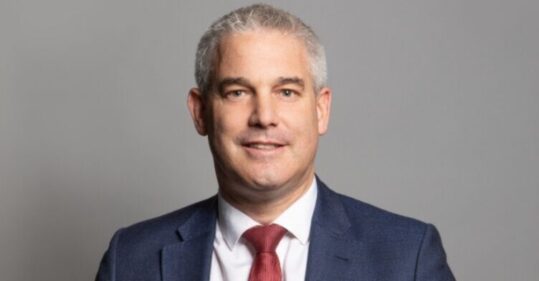Steve Barclay’s political resurrection has seen him go from health and social care secretary under Boris Johnson, to backbencher and back again, returning to the health brief under newly appointed PM Rishi Sunak.
Nursing in Practice, once again, takes a look at the new health secretary’s history and policies to see what may be in store for nurses across the country.
Barclay on pay
During his last tenure as health secretary, Mr Barclay handed down an average pay rise of 4% for nurses staff on Agenda for Change contracts.
Related Article: Practice nurses earn average of just over £35,000, salary survey report shows
Pat Cullen, RCN chief executive secretary general, said that ‘the challenge for the health secretary will be to demonstrate to health and care workers that he has learnt from earlier mistakes’, adding that ‘the UK Government must protect nursing to protect the public’.
While his successor and predecessor Thérèse Coffey said she was ‘not anticipating’ a higher pay offer for nurses, Mr Barclay has so far been silent on the matter. It remains to be seen whether the threat of strikes will budge him from his previous position.
Barclay on workforce
A key policy for Mr Barclay has always been boosting international recruitment, which he has often seen as the solution to the current workforce crisis in the NHS.
There is currently a record high of almost 47,000 nursing vacancies in the NHS, and nurses are leaving the services in bigger numbers, and at younger ages, than ever before. Meanwhile, recruitment has never been higher with 44,500 nurses joining the NHS in a single year.
He has also previously suggested sending NHS managers to India and the Philippines to recruit thousands of nurses, as well as encouraging care homes to hire staff who fail NHS English language requirements.
In his brief absence, Coffey also introduced several plans to boost international recruitment, including a £15m fund for the recruitment of international adult social care workers. It will be interesting to see how much of Coffey’s old plans remain in place, and which are replaced by new proposals.
Barclay on NHS management
Another area that has also frequently caught the attention of the returning health secretary is management in the NHS.
Related Article: General practice nurse pay: A salary survey of the profession 2025
In September, Mr Barclay said that ‘some community nurses spend half their time on admin’, adding that managers ‘need to be helping them not creating more paperwork’.
He proposed that the DHSC should play an instrumental role in reducing the bureaucratic demands on staff by cutting back on targets and focusing on scalable priorities.
To support this goal, he also introduced a hiring freeze on managers in the DHSC, despite NHSE having already made a similar hiring freeze.
He said: ‘This is not just about cost. It is also about effectiveness. Too much management can be a distraction to the front line. Staff at the centre need to streamline the administrative burden that those on the front line face.’
Barclay’s health voting record
Related Article: Dr Crystal Oldman reflects on decade as head of ‘trailblazing’ QICN
On healthcare, he has consistently voted to empower GPs to commission services on behalf of their patients, most recently in 2019. He has also consistently voted against euthanasia and restricting NHS services to private patients.






